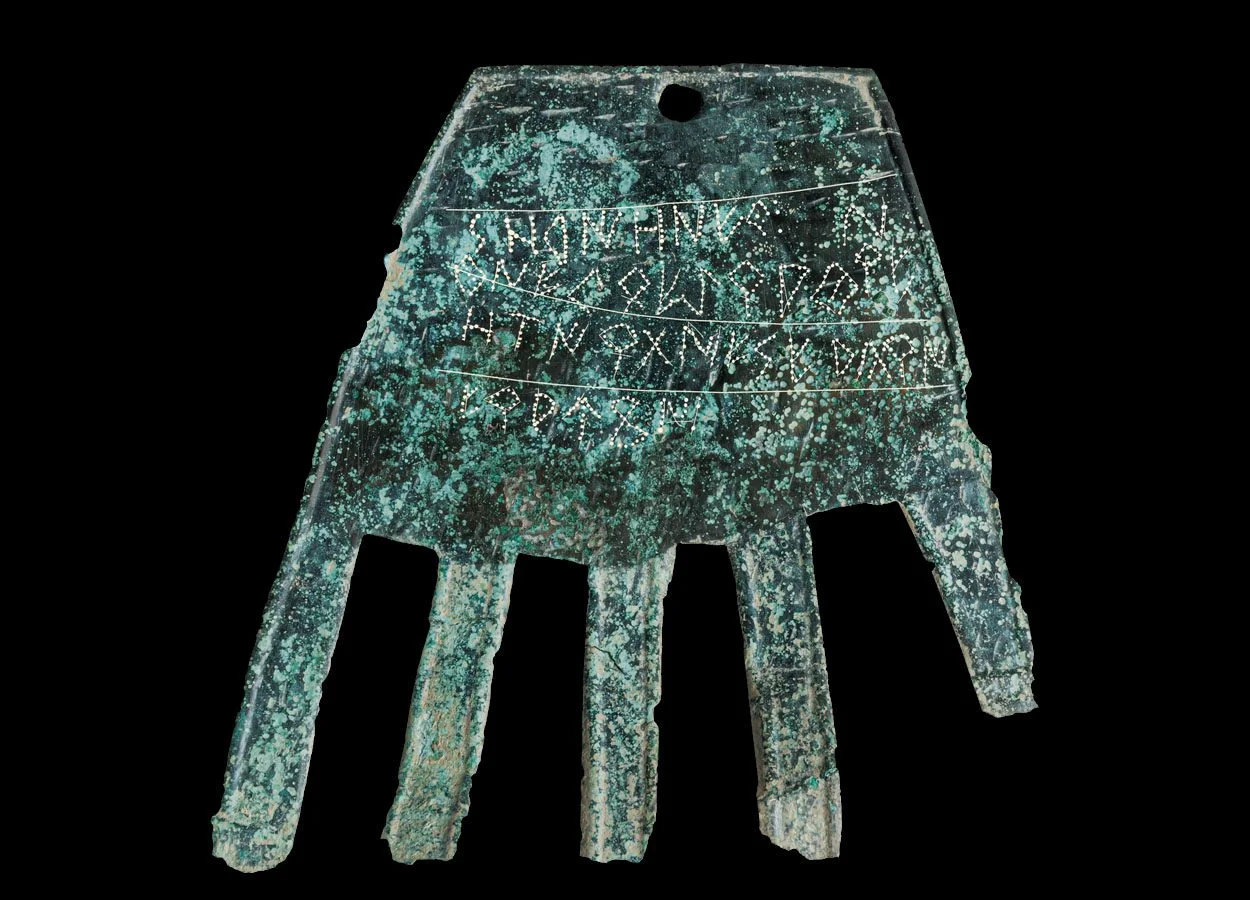A new study of the 2100-year-old Hand of Irulegi has revealed the oldest and longest example of Vasconic script.
The Hand of Irulegi was discovered in 2021 during excavations of an ancient settlement at the base of Castillo de IRULEGIko gaztelua near Pamplona, Spain.
The hand dates from the 1st century BC during the Roman Sertoria Wars (80 to 72 BC), a period of conflict between a faction of Roman rebels (Sertorians) and the government in Rome (Sullans).
A recent study, published in the journal Antiquity, has revealed that the inscribed text on the hand is written in the Vasconic language, potentially linked to present-day Basque.
This connection is supported by the identification of the Basque term for ‘good fortune’ on the artefact, suggesting that it served as a good luck charm or was a dedication to a pre-Roman deity.
Basque is one of the last descendants of the ‘Palaeo-European’ languages, spoken before Indo-European languages were introduced from migrating people originating from the Eurasian Steppe during the Bronze Age.
“The Irulegi hand is the only long written text retrieved to date, alongside several coins minted in the Vasconic territory,” states lead author of the study Mattin Aiestaran. However, “the lack of other comparative texts makes it difficult to prove a direct link between the Vasconic language spoken at Irulegi and the present-day Basque language.”
“The Irulegi hand must be considered as a well-integrated element within the cultural context of the settlement,” says Aiestaran. “The hand would have had a ritual function, either to attract good luck or as an offering to an indigenous god or goddess of fortune.”
Despite being the only long Vasconic text discovered so far, one of the words is close enough to Basque to be a ‘cognate’, a word that indicates a potential link.
“The discovery of the Hand of Irulegi has opened a new horizon to unravel the history behind the most enigmatic language still alive in Europe: the Basque language,” concludes Mikel Edeso Egia from the Aranzadi Science Society.
Header Image Credit : Antiquity Journal
Sources: Antiquity – A Vasconic inscription on a bronze hand: writing and rituality in the Iron Age Irulegi settlement (Ebro Valley). https://doi.org/10.15184/aqy.2023.199





